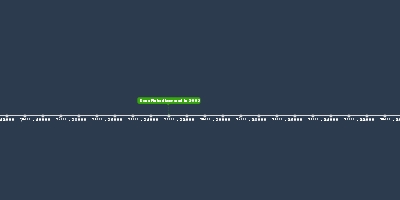Richard Wagner (22 Mai 1813 Jahr – 1 Apr 1883 Jahr)
Beschreibung:
No composer in the latter half of the nineteenth century exerted a greater influence than Richard Wagner, who not only transformed opera but extended it well beyond music. He sought a radical reform of opera (what he came to call music drama) that would combine different art forms--poetry, set design, staging, and music--into what he called the Gesamtkunstwerk or total artwork. To ensure maximum control over his works, Wagner wrote his own librettos and even helped design his own theater in Bayreuth, where only his own mature operas were and are performed. The orchestra played a fundamental role in the drama, providing both a continuous musical fabric, often called "endless melody," and developing a system of leitmotifs. These musical motifs and their meanings are varied and transformed over the course of the opera.Wagner's most important early operas are The Flying Dutchman, Tannhauser, and Lohengrin. He was a prolific and controversial writer on art, aesthetics, and politics. During a multiyear composing hiatus after Lohengrin, he wrote extensively on the purpose and future of opera. He put these ideas into practice with Der Ring des Nibelungeh, a cycle of four operas written between 1848 and 1874. He based the Ring on Norse and German mythology that dealt with the origins and destiny of the world. One of Wagner's innovations was his use of extended chromatic harmony, most notable in his opera Tristan und Isolde. His final opera, Parsifal, concerns knights that guard the Holy Grail, the chalice that caught Christ's blood at the Crucifixion.
Wagner hoped to revive and renew the ritual theater of ancient Greece and thus recapture its fabled ethical power. Unlike earlier reformers, however, but very much in the philosophical spirit of his time, Wagner conceived of that power in broadly social terms. In his view, Greek tragedy was teh mainstay of Athenian democracy. The ancient Greeks had brilliantly combined the various arts--music, poetry, dance as well as acting, costumes, architecture, and more--but with political decline over time these components had become separate and degraded. "Hand-in-hand with the dissolution of the Athenian State marched the downfall of Tragedy," Wagner proclaimed in Art and Revolution. "As the spirit of community (Gemeinschaft) split itself along a thousdand lines of egoistic cleavage, so was teh great united work (Gesamtkunstwerk) of Tragedy disintegrated into its individual factors." The disunited splinters were the separate arts as practiced in modern times, each with its own canons of isolated excellence and its own zealously guarded traditions of craft and technique. While some of the arts, notably music, had flourished as they pursued separate paths, they remained incomplete and needed to be reuinted. Wagner's mission was to put the pieces back together again in a synthesis of teh arts, the Gesamtkunstwerk (total or united artwork), a word Wagner himself rarely used but which has come to represent his artistic project.
For Wagner, this reuniting of the arts in the new, perfect drama would also mean a regeneration of society, an intentional combination of art and revolution. As the arts splintered and the state fell apart, people took consolation in Christianity, which Wagner considered a sign of weakness. He came close to the position of Marx, for whom religion was "the opium of the people." Not that Wagner opposed all religion. As he made clear in some of his later essays, art itself was his religion (Kunstreligion), as it had been the religion of the Greeks. This was underscored by teh subject matter of Greek drama and of his own operas, myth, which Wagner believed was the greatest repository of fundamental truths.
Zugefügt zum Band der Zeit:
Datum:
22 Mai 1813 Jahr
1 Apr 1883 Jahr
~ 69 years
